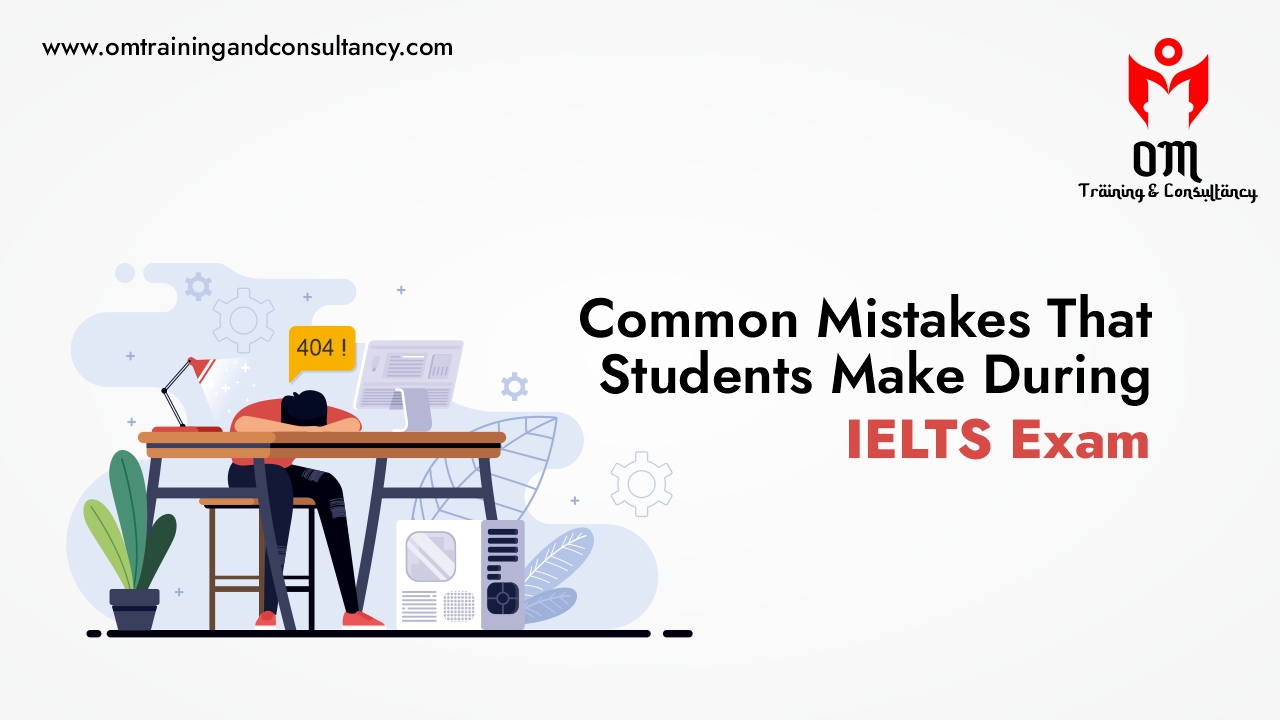The IELTS exam is definitely tough, and many people take it only to discover that their score falls short of their expectations. There are a variety of reasons behind this, but the most common one being their English level was inadequate. Nevertheless, there are several potential stumbling blocks that could prevent folks from achieving their ideal band score.
In this blog, We’ll tell you the top four IELTS mistakes in each of the 4 categories of the exam, as well as some tips on how to prevent them.
Writing in IELTS
Let’s begin with the toughest section of the examination. Here is the component that most people struggle with, and statistically, this is where you are most likely to receive your lowest mark. But why is that? Here are a few common IELTS writing test errors:
- Going Off Topic:
People frequently glance through the IELTS writing question, make a fast assessment, and then start writing. They either go off topic right away, or they deviate halfway through. However, you will need to spend a bit more time understanding the topic and formulating your response. You’ll be more able to develop an essay that receives a high Task Achievement score if you follow these steps.
- Long Opening Paragraphs:
For your first paragraph, don’t write far too much. Make it brief and concise, then spend a bit more time in the body of the essay expanding the concepts. That’s where the main information should be, so concentrate your efforts there and utilize the opening to tell the reader about what follows.
- Excessive Writing:
Everyone knows that drafting so very few words for IELTS essays is a bad idea, but did you also know that the contrary is also true? While it is not a good idea to write less than 250 words in task 2, going above 300 words can cause complications. This is due to the fact that you will make more errors and have far less time to correct mistakes at the end.
- Being Overly Personal:
Sure, the query may ask for your viewpoint, but you don’t have to say “I believe…” “I maintain…” all the time. Keep it official and professional instead: “I’m going to argue in this paper that…” Task 1 should be kept neutral for the academic test, and personalized pronouns should only be for the general test (writing letters).
Listening in IELTS
Some people find IELTS listening simple, while others find it difficult. It all relies on how much spare time you have to practice. The following are some frequent test issues that you must definitely avoid:
- Focusing on challenging issues:
Assume you’re confronted with a particularly challenging question. You just can’t seem to come up with a solution. You wait patiently for it to emerge, only to discover that it has passed you by. In fact, while you were waiting, you missed four answers. Rather than dropping one point, you’ve now dropped five. Understand that some answers will be difficult to come by, and afterward proceed to the next question fast.
- Leaving unsolved questions:
Because no marks are lost for incorrect responses in IELTS, you should always guess. This is especially true if the number of possible replies is small. If you do have to choose between a list of possibilities or give a number or letter, for example, you should surely choose something when it comes time to fill out the response sheet.
- Fearful of unknown words:
You will almost surely come across unfamiliar language in the IELTS reading and listening sections. So, what are your options? First and foremost, don’t be concerned! It’s fantastic if you can deduce the meaning from the context. Otherwise, leave it alone. Panic will simply slow you down and cause you to lose out on important information. Besides, the tough word might not be essential.
- Making grammatical errors:
In IELTS listening, you wouldn’t have much to write, although you may need to copy down certain words. Although they will not be unique terms, you must spell them correctly. Before taking the real IELTS exam, try these practice IELTS exams to determine if you have any difficulties. If this is the case, devote some time to improving your spelling.
– In this blog, we gave your the details about the IELTS writing and listening part of the exam, in the next blog we will be dropping some interesting details about the remaining parts of the common mistakes and their solution to make your score better in IELTS exam.
